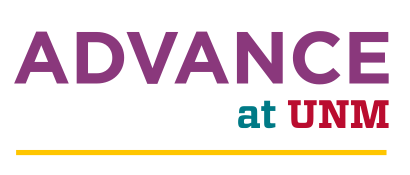Report finds UNM faculty members affected by ongoing pandemic stress and work obstacles
UNM faculty members are still affected by ongoing stress and work obstacles stemming from the Coronavirus pandemic, according to a new report compiled by Advance at UNM.
The report, based on data collected in spring 2022, found faculty feeling burned out, strapped by caregiving obligations, and struggling with scholarship amid a pandemic that scientists say is an ongoing concern.
Among other things, faculty said they face lingering barriers to scholarship, including 96 percent who said their networking opportunities were affected and 90 percent who said their ability to foster new research collaborations was negatively affected. Read more about that issue.
Faculty, and women in particular, said they were juggling caregiving responsibilities of children and other family members. Seventy-eight percent of faculty with kids under 18 said they spent more time on parenting responsibilities, and 76 percent of faculty parents said they adopted more responsibilities during the pandemic. The survey found that 66 percent of all faculty – and underrepresented minority faculty in particular – spent more time caregiving for family and friends. It also found that adult care demands during spring 2022 slightly exceeded child care demands. Read more about that issue.
Faculty also are dealing with personal effects of the pandemic, including being unfocused and emotionally drained while others reported restless sleep, depression, and other health effects. The survey found that the pandemic affected the physical health of underrepresented minority faculty more than non-URMs. Read more about that issue.
Nearly half of survey respondents have considered leaving UNM, according to the report. Eighty-four percent and 83 percent said they were dissatisfied and unmotivated at work respectively. Underrepresented minority faculty reported worse detriments to their physical, mental, and work-related well-being than non-URM faculty.
The survey also found that faculty had heightened responsibilities to students – via mentoring and teaching – as well as greater university service obligations compared to pre-pandemic times. Fifty-two percent reported they spent more time on service obligations while 50 percent spent more time in meetings. Faculty also said recruiting and building relationships with students suffered. Women reported more increased service work than men. URM faculty and women reported a greater number of and more severe impediments to their scholarship, compared to their respective group. Read more.
At the same time, 75.1 percent of faculty said their work continues to be a positive challenge. This suggests that support for faculty scholarship and teaching can positively affect faculty morale and well being.
Based on the findings, Advance at UNM drafted recommendations for UNM leaders including ongoing support for faculty scholarship productivity; continued collaboration with deans and chairs to modify faculty evaluations so that they account for the cumulative impact of COVID-19 on faculty performance, and flexible options for assistant professors to adjust their tenure clocks for promotion.
Other recommendations include continuous improvement of the implementation and enforcement of COVID-19 policies and practices among deans and department chairs and additional resources to support the scholarship productivity of faculty who had substantial caretaking responsibilities related to COVID-19 between Spring 2020 – Spring 2022.
Members of the ADVANCE at UNM Social Science Research Team administered the online survey to full-time faculty on Main Campus. The survey contained validated measures, wherever possible, as well as open-ended questions that allowed faculty to describe their experiences and ideas for improvement in more detail.
The survey opened on April 30, 2022 and was available through May 18, 2022. 343 faculty responded to the survey. Approximately 56% of respondents identified as women; 22% identified as faculty of color; 42% held faculty positions in STEM fields (including the social sciences); 23% were assistant professors, 28.4% were associate professors, 30.7% were professors (including distinguished professors), 12% held a lecturer title, and 5.9% held other full-time positions. Slightly more than 46% of respondents had children under age 18, while 8.2% had adult children.
The ADVANCE at UNM Social Science Research Team (Lisa Marchiondo, Shannon Sanchez-Youngman, Teagan Mullins,
and Naila Decruz-Dixon) prepared the survey and this report, with contributions from Melanie Moses and Julia Fulghum.
See coverage of our report in the Chronicle of Higher Education and see our mini course on Long COVID that came from work for this survey.
COVIDReportFinal.11.10.22




